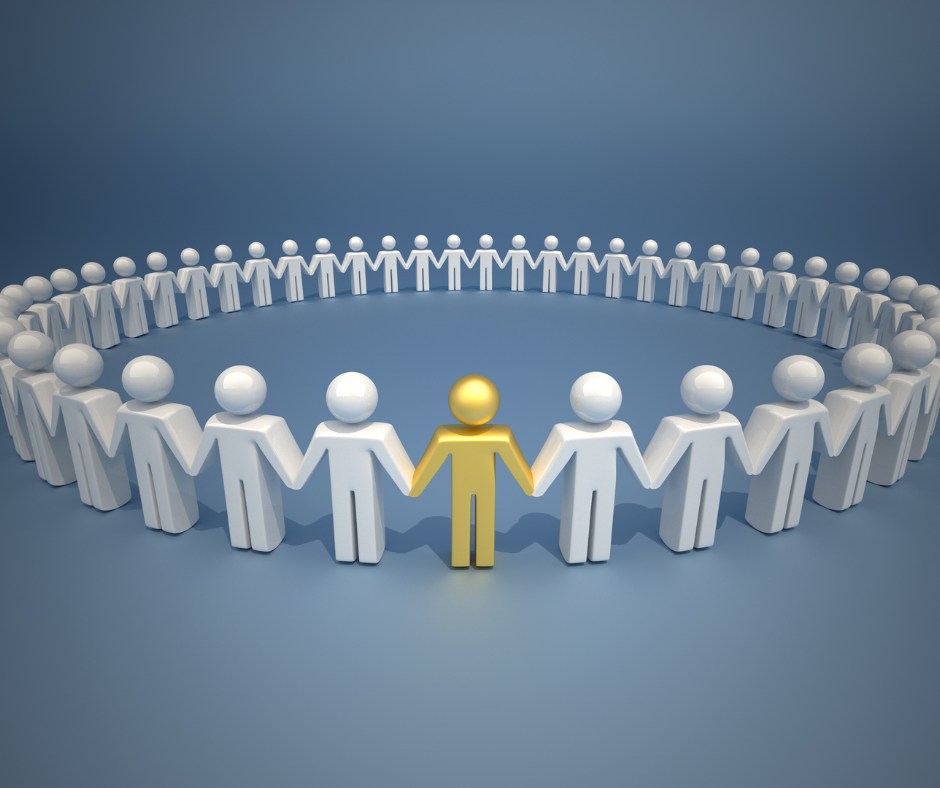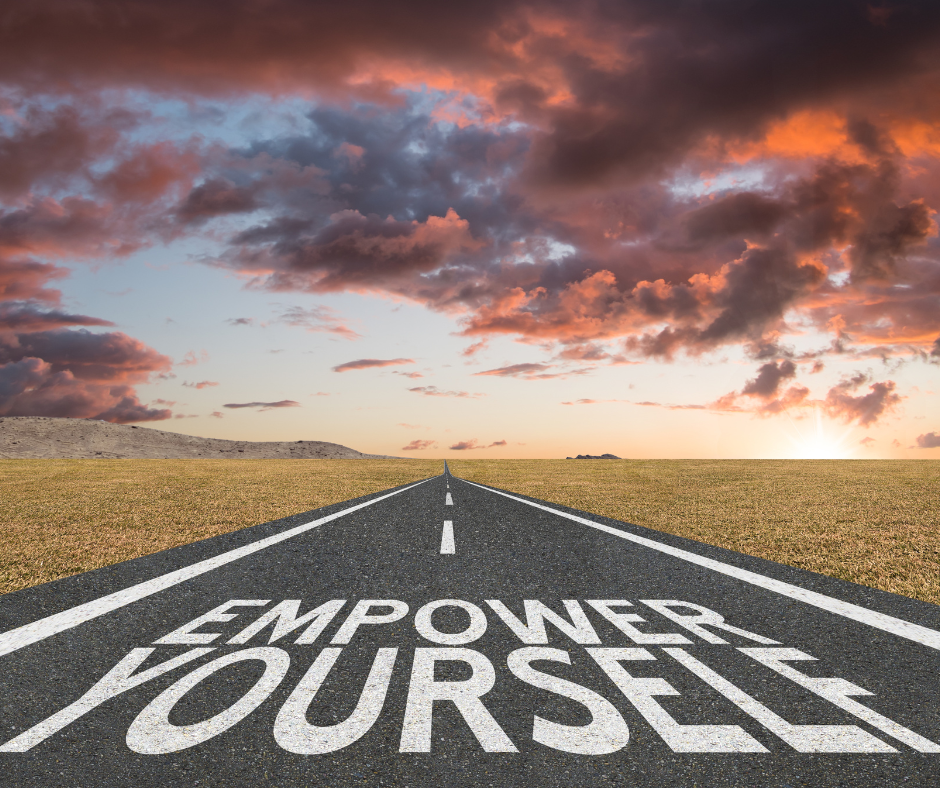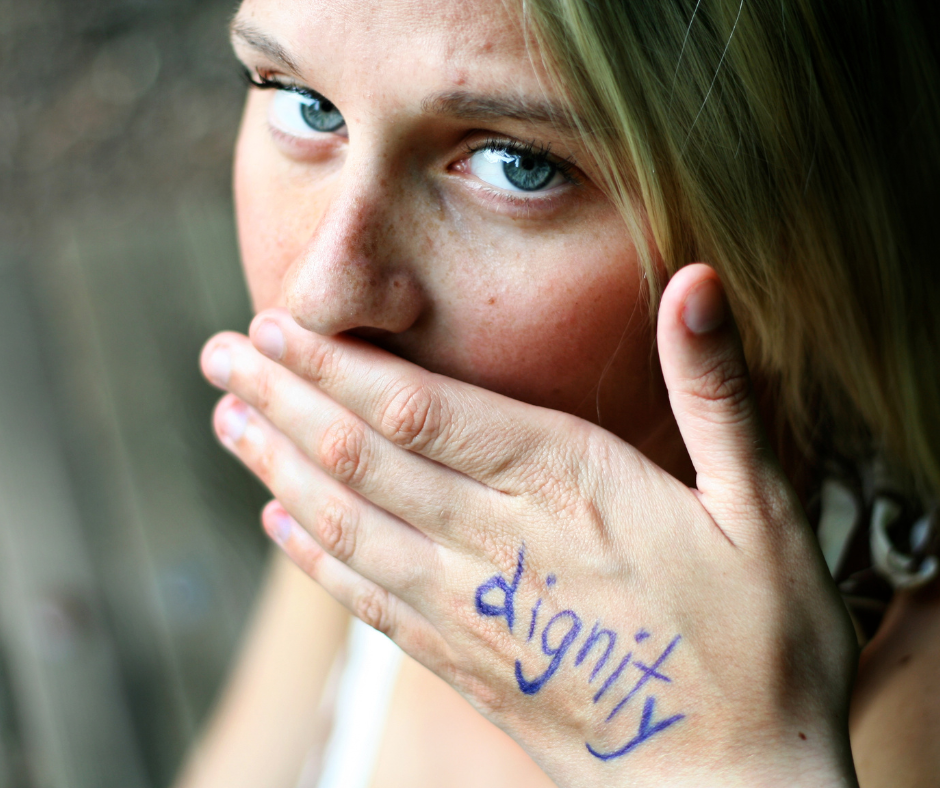Widows are often overlooked in discussions of leadership and empowerment, yet they hold the key to unlocking global progress. When widows are empowered to take on leadership roles, they bring unique perspectives and strengths that can drive meaningful change in their communities and beyond. The Urgency of Empowerment Globally, millions of widows are struggling to survive in the face of economic hardship and social isolation. These women are often excluded from leadership opportunities, despite their potential to make a significant impact. The time to change this narrative is now. Empowering widows to be leaders is not just about giving them a voice—it’s about recognizing their inherent value and potential. Widows have lived through profound loss and hardship, yet they continue to persevere. This resilience is a powerful asset in leadership, enabling widows to drive change and inspire others. Emotional and Social Transformation Leadership is not just about power—it’s about transformation. For widows, taking on leadership roles can be a way to heal from their loss and rebuild their lives. It gives them a sense of purpose and a platform to advocate for others. This emotional and social transformation is not just beneficial for the individual widow—it has the potential to transform entire communities. Taking Immediate Action The time to empower widows as leaders is now. This requires a concerted effort from governments, non-profits, and communities to provide widows with the resources and support they need to succeed. It also requires a shift in societal attitudes, recognizing the value and potential of widows as leaders. We cannot afford to wait any longer. By empowering widows to be leaders, we are investing in a brighter future for all. Let’s take action today to unlock the potential of widows and drive global progress.
From Grief to Glory: How Widow Leadership is Shaping a New Global Era By Voice of Widows
Widowhood is often seen as a time of sorrow and loss, but for many women around the world, it is also a time of profound transformation. When widows are empowered to take on leadership roles, they become powerful agents of change, shaping a new global era of progress and equality. The Global Crisis of Widowhood The challenges faced by widows are immense. In many parts of the world, widowhood is accompanied by social isolation, economic hardship, and discrimination. Widows are often left to navigate these challenges alone, without any support. But this crisis is also an opportunity—an opportunity to empower widows to become leaders and change-makers. The urgency of this issue cannot be ignored. Every day, widows around the world are denied their rights and their dignity. But when we empower these women to lead, we are not just addressing their immediate needs—we are paving the way for a more just and equitable world. Emotional Empowerment Leadership is a powerful tool for emotional empowerment. For widows, taking on a leadership role can be a way to reclaim their identity and find meaning in the face of loss. It gives them the confidence to speak out, to advocate for themselves and others, and to drive change. This emotional empowerment is not just beneficial for the individual widow—it has a ripple effect, inspiring others and transforming communities. Urgent Action Required Empowering widows to be leaders requires immediate action. This means providing widows with the resources and support they need to succeed, from education and training to financial assistance and legal protection. It also means challenging the social norms and stereotypes that hold widows back. The time to act is now. By empowering widows to be leaders, we can create a world where every woman has the opportunity to reach her full potential. Let’s join forces to turn grief into glory and unleash the power of widows to shape a new global era.
Breaking Barriers: The Global Movement to Empower Widows as Change-Makers By Voice of Widows
Widowhood often comes with profound grief, but for many women around the world, it also brings social isolation and economic hardship. Yet, in the face of these challenges, widows are rising as powerful change-makers. Empowering widows to take on leadership roles is not just a matter of justice; it’s a catalyst for global transformation. The Urgent Need for Change Widows are among the most marginalized groups in many societies, often facing discrimination and exclusion. Globally, millions of widows are left without support, struggling to provide for their families. But when these women are given the tools to lead, they can break the cycle of poverty and marginalization—not just for themselves, but for their entire communities. The urgency of this issue cannot be overstated. Every day that passes without action is another day that widows and their families remain trapped in a cycle of poverty and exclusion. But when we empower widows to be leaders, we are not just changing their lives—we are changing the world. Emotional Resilience Empowering widows is about more than just economic support—it’s about emotional resilience. Leadership gives these women a sense of purpose and a platform to advocate for change. It helps them heal from their loss and transform their grief into strength. Widows who become leaders often speak of a profound emotional shift, as they move from being seen as victims to being recognized as powerful agents of change. Actionable Steps To truly empower widows as leaders, we need to break down the barriers that hold them back. This means advocating for policy changes that support widow-led initiatives, providing access to education and training, and fostering inclusive communities that value the contributions of widows. The time to act is now. We cannot afford to wait any longer. By empowering widows to be leaders, we can create a world where every woman, regardless of her circumstances, has the opportunity to thrive. Let’s join together to break the barriers and unleash the potential of widows as change-makers.
The Ripple Effect: How Empowering Widows to Be Leaders Transforms Entire Communities
In many cultures, widows are often left in the shadows, their voices unheard, their potential untapped. Yet, when widows are empowered to become leaders, the impact ripples far beyond their own lives. This transformation is not just personal—it changes the very fabric of communities and nations. The Urgency of Empowerment Globally, over 258 million widows face significant economic and social challenges. Many are left to fend for themselves and their children without any support. The loss of a spouse often leads to a loss of status, income, and opportunities. But when these women are given the tools and support to rise as leaders, they can change the narrative—not just for themselves, but for their communities as well. Empowering widows is not just a moral imperative; it’s a practical necessity. Studies show that when women are given leadership roles, communities see better health outcomes, improved education, and stronger economic growth. This is especially true for widows, who often have a deep understanding of the challenges faced by the most vulnerable members of society. Emotional Transformation For many widows, becoming a leader is a journey of emotional healing. It’s about reclaiming their identity and finding purpose after profound loss. Leadership roles give them a platform to share their stories, advocate for others, and drive change. This empowerment is not just about gaining power; it’s about restoring dignity and self-worth. Taking Action The time to act is now. Empowering widows to be leaders requires a collective effort—government policies that support widow-led initiatives, non-profit organizations that provide training and resources, and communities that embrace these women as leaders. By investing in widows, we are investing in a brighter future for all. Widows have the power to transform lives—not just their own, but the lives of everyone around them. Let’s take action today to empower these women and unleash their potential as leaders. The impact will be felt for generations to come.
Women, Work Abroad: Opportunity and Risk of a Lifetime
In today’s interconnected world, the opportunity for women to work abroad presents itself as both a gateway to personal growth and a challenge that demands careful consideration. For many, this journey signifies more than just a career move; it’s a transformative experience that shapes perspectives, builds resilience, and opens doors to new cultures and opportunities. However, beneath the allure of adventure lies a landscape fraught with uncertainties and risks that can profoundly impact one’s life and well-being. Embracing Opportunity: The Promise of Working Abroad Working abroad offers women a chance to break through societal norms and professional barriers, fostering independence and self-reliance. It’s a chance to immerse oneself in diverse cultures, languages, and work environments, broadening horizons and nurturing a global mindset. The exposure to different ways of thinking and operating can fuel innovation and creativity, making it a fertile ground for professional development. Moreover, the financial rewards can be substantial, often providing higher salaries and better career advancement opportunities than those available domestically. This economic empowerment can empower women to support themselves and their families, breaking cycles of dependence and inequality. The Flip Side: Recognizing the Risks However, the path of working abroad isn’t without its challenges and risks, especially for women. Cultural differences, language barriers, and unfamiliar legal frameworks can create significant hurdles. Safety concerns, ranging from personal security to health risks, can loom large, particularly in regions with political instability or social unrest. One of the most poignant risks involves the emotional toll of being away from home and loved ones. Loneliness and isolation can affect mental health, while navigating new social dynamics and building support networks abroad can be daunting tasks. Actionable Insights: Navigating the Journey Safely and Successfully 1. Research Extensively: Before embarking on a job abroad, thoroughly research the destination country. Understand its cultural norms, legal protections for workers, healthcare system, and safety records. 2. Network Strategically: Build connections with expatriate communities, local professionals, and mentors who can provide guidance and support. Networking can not only enhance career prospects but also offer invaluable insights into local life. 3. Safety First: Prioritize personal safety at all times. Familiarize yourself with emergency procedures, local laws, and safe transportation options. Trust your instincts and seek assistance if you feel unsafe. 4. Emotional Preparedness: Mentally prepare for the emotional challenges of living abroad. Stay connected with loved ones through regular communication and seek out social activities that can help build a sense of belonging. 5. Financial Planning: Manage finances prudently to ensure stability during the transition and beyond. Understand tax implications, currency exchange rates, and any potential financial benefits or risks associated with working abroad. Urgency and Conclusion: Seizing the Moment The decision to work abroad as a woman is both empowering and daunting. It demands courage, resilience, and a proactive approach to mitigate risks while embracing opportunities. By equipping oneself with knowledge, support networks, and emotional readiness, women can navigate this transformative journey successfully. In conclusion, while the allure of working abroad beckons with promises of growth and adventure, it’s essential to approach this opportunity with eyes wide open. With careful planning, cultural sensitivity, and a commitment to personal safety and well-being, women can turn this experience into a defining chapter of their lives—one filled with achievement, learning, and lasting memories. As the voice of widows, we advocate for empowering women to seize opportunities while staying grounded in their values and safety. Let us embrace the world with courage and compassion, ensuring that every step we take abroad is a step towards a brighter future.
Why Women Healthcare Volunteers Are Undervalued: Unveiling Their Essential Role
In the bustling world of healthcare, where every moment counts and every life saved is celebrated, there exists a quiet army of volunteers who often go unnoticed and underappreciated: women. These dedicated individuals sacrifice their time, energy, and sometimes even their emotional well-being to support healthcare initiatives worldwide. Yet, their contributions are frequently undervalued, overshadowed by the larger mechanisms of medical care. Today, we shed light on why women healthcare volunteers are so crucial yet remain overlooked. The Unseen Heroes Imagine a bustling hospital ward, where doctors and nurses tirelessly attend to patients. Amidst this chaos, volunteers—often women—work tirelessly behind the scenes. They offer comfort to grieving families, guide confused patients through labyrinthine corridors, and provide invaluable support to healthcare professionals. These volunteers are the unseen heroes who bridge gaps in care, offering human connection in an increasingly mechanized healthcare system. Actionable Insights Advocacy for Recognition: It’s time to advocate for recognition of women healthcare volunteers. They deserve acknowledgment not just for their time but for their emotional investment in patient care. Training and Support: Provide comprehensive training and emotional support programs for volunteers. Recognizing their emotional labor is crucial in retaining dedicated volunteers. Policy Change: Advocate for policies that ensure fair treatment and recognition of volunteers within healthcare systems. Their contributions should be formally recognized and appreciated. The Emotional Toll Volunteering in healthcare settings can take a significant emotional toll. Women volunteers often find themselves comforting patients in distress, witnessing heartbreaking situations, and grappling with their own emotions in the process. Despite this, their efforts are frequently sidelined, their emotional labor overlooked. Urgent Call to Action The urgency lies in recognizing and valuing the contributions of women healthcare volunteers. They are not just a supporting cast but integral members of the healthcare ecosystem. Their efforts save time, improve patient outcomes, and provide much-needed comfort in times of crisis. Final Thoughts As we reflect on the vital role women healthcare volunteers play, let us remember their unwavering dedication and resilience. It’s time to elevate their voices, recognize their contributions, and ensure they receive the support and appreciation they deserve. By doing so, we not only honor their commitment but also strengthen our healthcare systems with compassion and empathy. In conclusion, the undervaluation of women healthcare volunteers is a systemic issue that requires collective action. Let us amplify the voice of widows who volunteer, ensuring their impact is felt and their efforts celebrated. Together, we can create a healthcare environment where every volunteer—especially women—is recognized as a pillar of strength and compassion.
Empowering Women with Disabilities: Breaking Barriers in the Workforce
In today’s rapidly evolving world, the journey towards workplace diversity and inclusivity has taken significant strides. However, amidst these advancements, there remains a group whose voices often go unheard – women with disabilities. These remarkable individuals not only navigate the challenges of everyday life but also strive to carve out meaningful careers despite societal barriers. Their stories of resilience, determination, and triumph deserve to be celebrated and shared. The Current Landscape Women with disabilities face a unique set of challenges when entering the workforce. From physical accessibility issues to prejudiced attitudes and limited job opportunities, the hurdles can seem insurmountable. According to recent statistics, the employment rate for disabled women lags significantly behind that of their non-disabled peers, highlighting the urgent need for change. Breaking Down Barriers However, the narrative is gradually shifting. Organizations worldwide are recognizing the immense value that individuals with disabilities bring to the table. They are not just advocating for diversity but actively implementing policies and practices that foster an inclusive environment. Initiatives such as accessible workplace accommodations, flexible work arrangements, and anti-discrimination policies are paving the way for greater opportunities. The Power of Representation One of the most powerful catalysts for change is representation. When women with disabilities see others like them succeeding in various fields, it ignites a sense of possibility and ambition. Their visibility not only challenges stereotypes but also inspires a new generation to pursue their dreams unapologetically. Actionable Steps Towards Inclusivity If you’re an employer or someone looking to support this cause, here are actionable steps you can take: Educate and Sensitize: Implement training programs to educate staff about disability etiquette, inclusive language, and the importance of accommodating diverse needs. Accessibility Matters: Conduct accessibility audits to ensure your workplace is physically and digitally accessible to everyone. Invest in assistive technologies and make necessary adjustments to facilities. Flexible Work Options: Offer flexible work schedules or remote work opportunities that can accommodate varying needs and abilities. Equal Opportunity Policies: Develop and enforce policies that promote equal opportunity and prevent discrimination based on disability. Foster a culture where differences are celebrated. Partner with Disability Organizations: Collaborate with organizations that specialize in supporting individuals with disabilities. This can help you tap into a pool of talented candidates and gain insights into best practices. The Urgency of Now The urgency to empower women with disabilities in the workforce cannot be overstated. Every day that passes without inclusive practices is a missed opportunity for innovation and progress. By dismantling barriers and embracing diversity, we not only enrich our workplaces but also contribute to a more equitable society. Embracing Emotional Impact Behind every statistic lies a human story of courage and resilience. Imagine the joy and pride of a woman with a disability securing her dream job, defying societal expectations, and proving her capabilities. These stories evoke empathy and compel us to take action, ensuring that every individual, regardless of ability, has an equal chance to thrive. Conclusion As we move forward in the pursuit of workplace equality, let us amplify the voices of women with disabilities. Let us champion their rights, celebrate their achievements, and create a future where inclusion is not just a goal but a reality. Together, we can build a workforce that reflects the diversity and strength of our society, where every woman, regardless of her abilities, can shine brightly. In the journey towards empowerment, there is no room for delay. The time to act is now.
Empowering Women: Tackling Menstrual Hygiene with Urgency and Compassion
In many parts of the world, menstrual hygiene remains a significant challenge, often compounded by cultural taboos, lack of education, and inadequate access to resources. This blog aims to shed light on the critical issue of menstrual hygiene and provide actionable steps to empower women globally. The Urgency of Menstrual Hygiene Menstrual hygiene is not just a matter of comfort; it’s a fundamental issue of dignity and health. Yet, millions of women and girls face immense challenges every month due to the lack of access to sanitary products, clean water, and private sanitation facilities. The consequences of poor menstrual hygiene can be severe, leading to infections, reproductive health issues, and even exclusion from daily activities like school and work. Imagine the emotional distress of not being able to manage a natural bodily function safely and hygienically. This is the harsh reality for countless women who are unable to afford sanitary products or are restricted by cultural norms that stigmatize menstruation. Actionable Steps Towards Change Education and Awareness: The first step towards tackling menstrual hygiene challenges is education. Communities need comprehensive, stigma-free education about menstruation, covering topics such as menstrual health, hygiene practices, and the importance of using safe and hygienic products. Access to Affordable Products: Governments and organizations must prioritize making menstrual products affordable and accessible. This can be achieved through subsidies, distribution programs in schools and community centers, and partnerships with local businesses. Safe Sanitation Facilities: Access to clean and private sanitation facilities is crucial for maintaining menstrual hygiene. Building and maintaining safe toilets with running water and disposal facilities should be a priority in communities and public spaces. Empowering Women Economically: Economic empowerment plays a significant role in menstrual hygiene. Initiatives that support women in generating income, such as microfinance programs or vocational training, can enable them to afford menstrual products and improve their overall quality of life. Breaking Cultural Taboos: Addressing cultural taboos and social stigma surrounding menstruation is essential. Open dialogue, community engagement, and advocacy can help dismantle harmful myths and beliefs, promoting a more supportive environment for menstrual health. Emotional Impact and Empathy Consider the emotional toll that inadequate menstrual hygiene takes on women and girls. It affects their confidence, self-esteem, and mental well-being. By approaching this issue with empathy and understanding, we can create meaningful change that respects women’s dignity and rights. Imagine a world where every woman and girl can manage her menstruation safely and with dignity, without fear or shame. This vision is achievable through collective action, advocacy, and a commitment to ensuring that menstrual hygiene is prioritized globally. Conclusion Tackling menstrual hygiene requires urgent action on multiple fronts: education, access to resources, sanitation facilities, economic empowerment, and cultural change. By working together and advocating for policy changes, we can create a world where menstruation is no longer a barrier to women’s health, education, and empowerment. Let’s raise our voices, break the silence, and stand in solidarity with women worldwide. Together, we can make menstrual hygiene a priority and ensure that every woman and girl can experience their menstruation with dignity, respect, and safety. Remember, the change starts with each of us. Take action today, and let’s build a future where menstrual hygiene is a right, not a privilege.
Revolutionizing the Future of Widowhood: Empowering Voices, Embracing Change By Voice of Widows
Losing a partner is a profoundly emotional experience, one that reshapes every facet of life. In the past, widowhood was often shrouded in silence, with widows navigating their grief and newfound responsibilities alone. However, as we stand on the brink of a new era, there is a powerful movement underway to revolutionize the way we perceive and support widows. This movement is not just about empathy; it’s about action, empowerment, and urgency. Breaking the Silence: From Isolation to Community For centuries, widows have endured social stigma and isolation. Their voices were muted, their needs overlooked. But today, organizations like Voice of Widows are changing this narrative. We are creating spaces where widows can share their stories without fear of judgment, connect with others who understand their journey, and access resources that empower them to rebuild their lives. Actionable Steps Toward Empowerment Financial Empowerment: One of the most pressing issues widows face is financial instability. Many find themselves suddenly responsible for managing finances without adequate knowledge or support. At Voice of Widows, we provide financial literacy workshops and resources to help widows navigate this challenging terrain confidently. Career Support: Reentering the workforce or advancing in one’s career after losing a spouse can be daunting. Our career counseling programs offer guidance on resume building, skill development, and networking, ensuring widows have the tools they need to achieve professional success. Emotional Well-being: Grief is a complex emotion that manifests differently for everyone. Through counseling services and support groups, we help widows cope with their loss, manage stress, and rebuild their emotional resilience. Legal Advocacy: Understanding rights and navigating legal processes can be overwhelming during such a vulnerable time. We provide legal clinics and workshops to educate widows about their rights regarding inheritance, property, and other legal matters. Emotional Urgency: Amplifying Voices, Inspiring Change The urgency to revolutionize the future of widowhood is not just practical; it’s deeply emotional. Every widow has a story that deserves to be heard, every struggle a challenge that deserves to be met with empathy and action. By amplifying these voices, we inspire societal change and foster a culture of compassion and support. Looking Ahead: A Vision for the Future As we look to the future, our vision is clear: a world where widows are not defined by their loss but by their resilience and strength. Through advocacy, education, and community building, we will continue to revolutionize the way society supports widows. Together, we can create a future where every widow feels empowered to embrace life’s new chapter with courage and hope. Join the Movement Whether you are a widow seeking support, a supporter eager to make a difference, or simply someone who believes in the power of empathy and action, your voice matters. Join Voice of Widows in revolutionizing the future of widowhood. Together, we can transform grief into growth, isolation into community, and silence into powerful advocacy. Together, we can create a future where no widow walks alone. In conclusion, the future of widowhood is not just a concept; it’s a movement. It’s about standing together, lifting each other up, and paving the way for a brighter, more empowered tomorrow. Let’s continue to raise our voices, take action, and revolutionize what it means to be a widow in the 21st century.
Empowering Widows: A Journey Towards Self-Sufficiency and Dignity
Introduction: In the wake of loss, the journey towards rebuilding life can seem insurmountable. For young widows, the challenge is not only emotional but also financial and social. However, within this struggle lies incredible resilience and potential. Today, we delve into the story of young widows striving for self-sufficiency through entrepreneurship and reclaiming their dignity. Understanding the Journey: Imagine losing your life partner unexpectedly, leaving behind dreams shattered and responsibilities looming. This is the reality for countless young widows globally. Beyond grief, financial insecurity often looms large, especially when there are children to support. The traditional support systems may not always suffice, pushing many towards exploring unconventional paths. The Power of Entrepreneurship: Entrepreneurship emerges as a beacon of hope amidst despair. It offers not just income but also a sense of purpose and independence. Many widows have turned their pain into passion, leveraging skills honed during their partner’s life or discovering newfound talents. From crafting handmade goods to providing niche services, these businesses are not just about survival but about thriving against all odds. Challenges Faced: Starting a business as a young widow is fraught with challenges. Limited financial resources, lack of business experience, and societal stigma are formidable barriers. Moreover, balancing entrepreneurship with caregiving responsibilities adds another layer of complexity. Yet, these obstacles are not deterrents but catalysts for innovation and determination. Support Systems: Recognizing the unique needs of young widows, support systems tailored to their entrepreneurial aspirations are crucial. Mentorship programs, financial assistance, and emotional support networks play pivotal roles in nurturing their ventures. Communities and organizations dedicated to empowering widows provide invaluable resources, fostering a sense of belonging and encouragement. Actionable Steps Towards Empowerment: Skills Development: Invest in training and skill development programs tailored to entrepreneurial needs. Financial Literacy: Provide workshops on financial management and access to microfinance options. Mentorship: Pair widows with successful entrepreneurs for guidance and inspiration. Networking: Facilitate connections within the business community to expand market reach and opportunities. Legal Support: Offer legal aid to navigate business regulations and protect their ventures. Urgency of Change: The urgency to support young widows in their entrepreneurial endeavors cannot be overstated. Beyond economic impact, it’s about restoring dignity and agency. Every widow empowered is a testament to resilience and potential unleashed, a ripple effect that transforms communities and societies. Conclusion: In conclusion, the journey from widowhood to entrepreneurship is not just a narrative of survival but of triumph. It’s about reclaiming identity, rebuilding lives, and inspiring others through action. As a society, our collective responsibility lies in fostering environments where young widows can thrive, ensuring their businesses flourish, and their dignity remains intact. Together, let’s empower these remarkable individuals to rewrite their stories—one venture at a time. Call to Action: Join us in supporting young widows on their entrepreneurial journey. Whether through mentorship, financial support, or spreading awareness, your contribution can make a profound difference. Together, we can turn loss into opportunity and empower these resilient women to build brighter futures.










